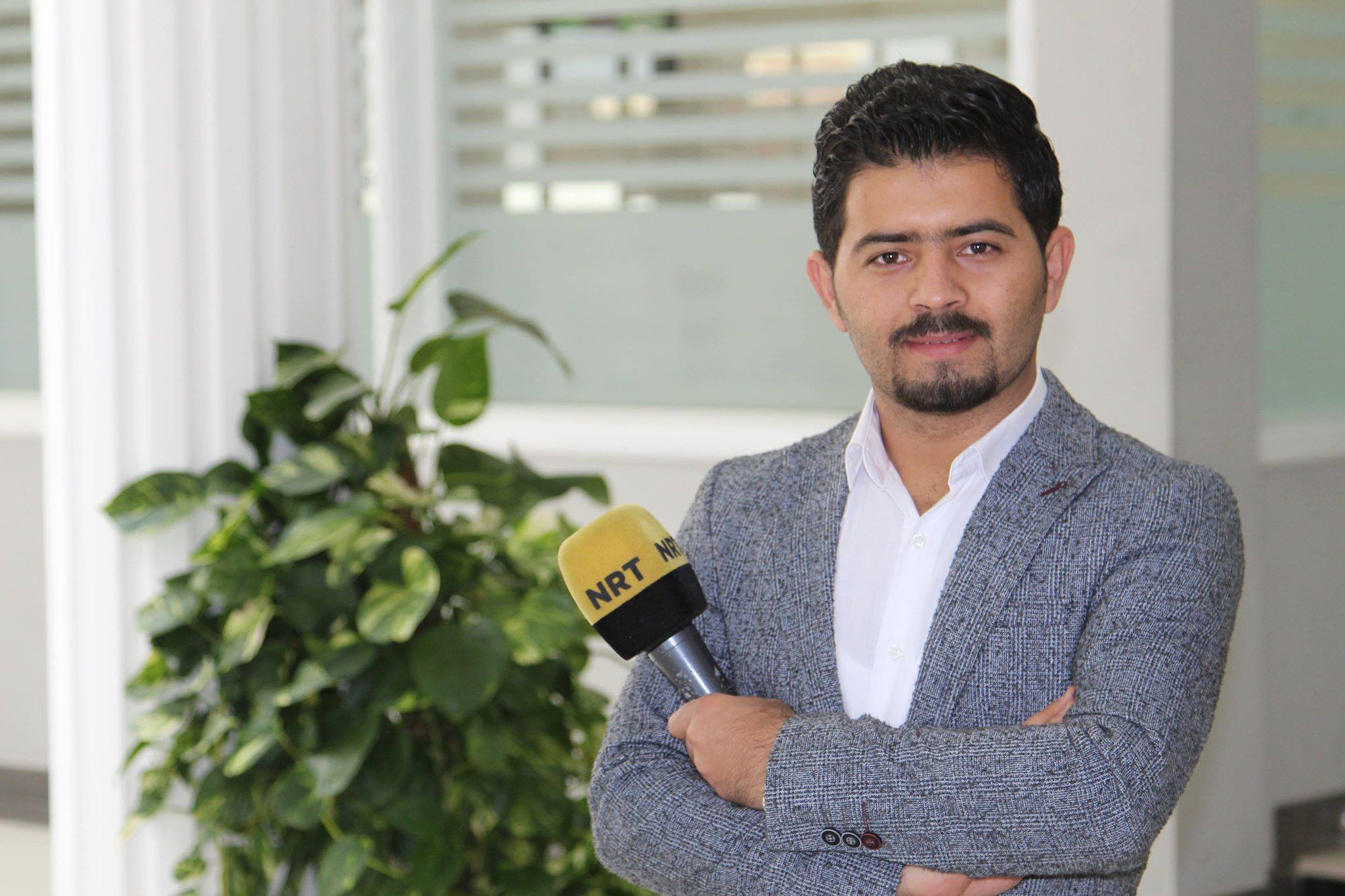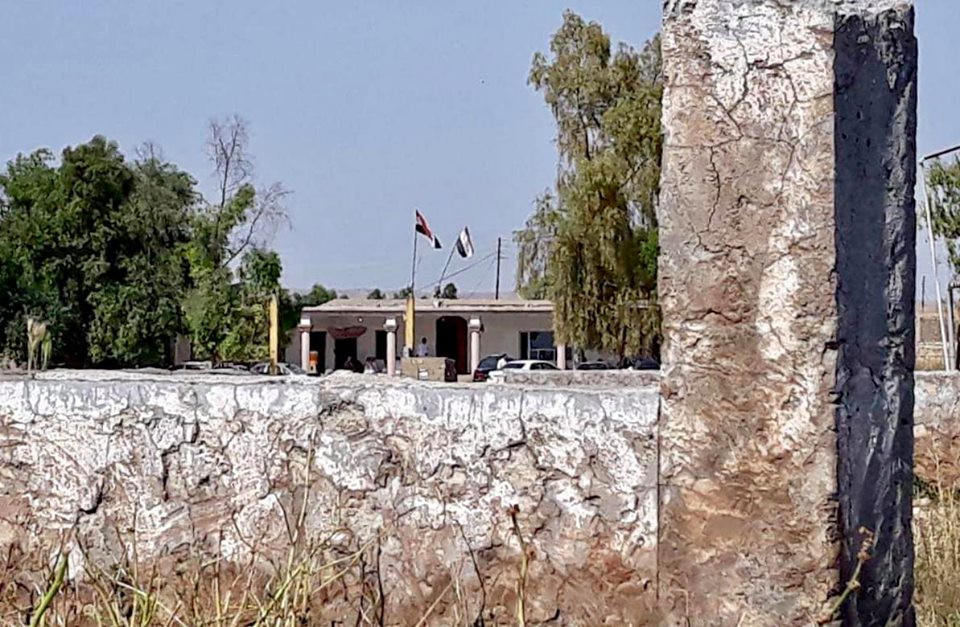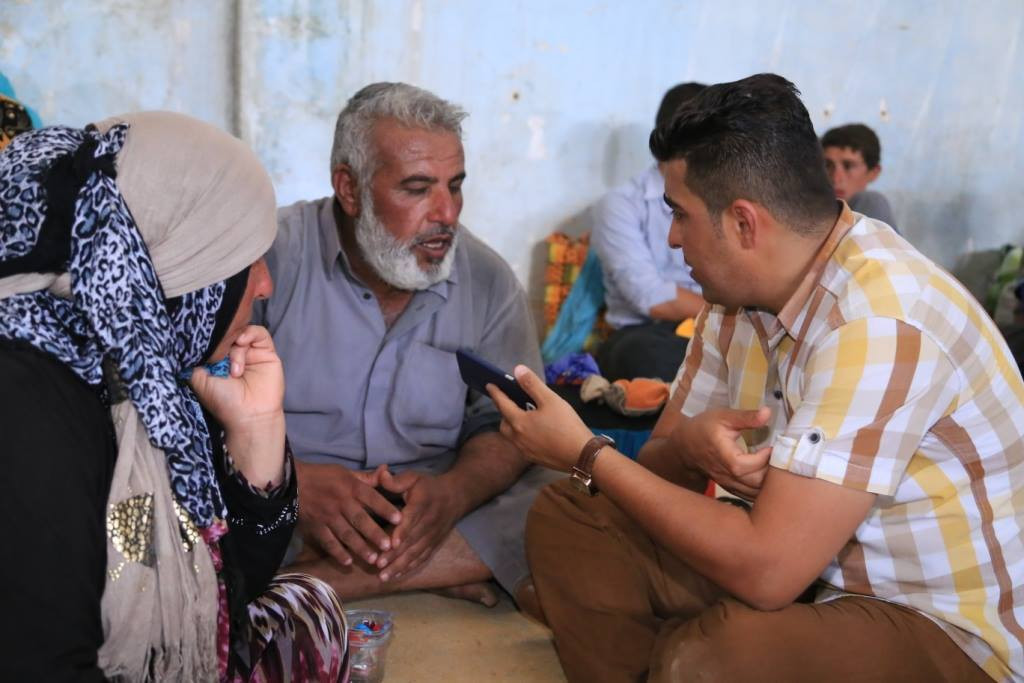My colleagues in Kirkuknow’s reporters and news room group chats were discussing whether who would cover the tensions which broke out over land disputes in Kirkuk's Palkana village between Kurds and Arabs. The incident was a headline in some media channels.
On that day, May 14, I was covering a story about an alleged corruption in Kirkuk’s education directorate, yet without any hesitation I told my colleagues in the group chat that I was going to Palkana.
I made several calls with KirkukNow newsroom and we talked about what route should I take and what should I cover there. Like usual, they told me to be careful. Later I drove to Palkana at 1 p.m. and passed through police and army checkpoints.
The distance to the village which is located northwest of Kirkuk is 55 km, but the main road was blocked by villagers; therefore I decided to take another route through Shanagha forest which added10 more km to the distance.
A tense situation in an almost empty village
The road was empty; a vehicle which belonged to the Havana oilfields was passing every five minutes. When I arrive in Palkana, the situation was tense. Military vehicles were patrolling the village, and some of the people there stayed home were afraid to come out.
Overall, what happened there was that about 200 Arabs stormed the village and asked the Kurdish villagers to leave the area claiming it belonged to them. The land ownership dispute dates back to the former Ba’ath regime’s era and remained unresolved.
When I arrived in the village the army had intervened and arrested some people from both sides.
I met some of the villagers who earlier contacted me and wanted the issue to be published in the media.
I was about to start the coverage when an NRT team consisted of Aso Ahmed (reporter) and Hawta Bahroz (cameraman) arrived. As they began their coverage, a military vehicle of the Salahaddin Operations Command came and said “this is a military zone”.
It was the first time I hear that this place was a military zone, while it is a populated area; even the security checkpoints I passed through did not say it was a military zone.

NRT correspondent Aso Ahmed
I spoke with their commander and told him that people live here; they have problems and we are here as journalists to cover their story.
After I showed him my badge, he immediately called their headquarters. We had to wait for over an hour under the extreme heat unable to use our camera or cellphones.
At around 2.30 p.m. we felt that the situation was unusual. They repeatedly asked if we had shot any videos of the unrest; therefore I phoned the newsroom and informed them about the situation there.
The Arab families were still roaming the village inside their luxurious cars. Next to us a young man in police uniforms was standing there with his mother under the hot weather, when the commander asked them why they were did not go to their home. They told him that an Arab family had stormed their house and forced them to leave. Immediately the commander went to the house and ordered the Arab family out, clearing the way for the Kurdish family to go to their home.
As we were there, a woman fainted due to the high temperatures.
In the meantime, an officer called Sajad again asked us if we had shot any videos or photos. Later he asked if we were being assaulted by anyone. He later said, “You can leave now and we will escort you to the checkpoint.”
The situation gets worse again
We got into our cars and drove out but after a few kilometers a military vehicle stopped us and said that we had to go the regiment’s headquarters for investigations.
At the headquarters they took our cameras, cellphones and IDs. The investigations started in Lieutenant Colonel Wala’ Sabah Izzi’s room. He said that we have entered a military zone without notifying the authorities and that we made live broadcast.
The interrogations lasted until 4.30 p.m. Later they gave us our mobile phones back and said that we could call our families and our media outlets to tell them where we were.
At the regiment’s headquarters we were referred again to Sajad whom we met earlier in Palkana. The commander said, “Take them to Sargarran police station to be released there.”
Sargarran is a sub-district associated with Dubiz district northwest of Kirkuk.
We got into our cars again with a soldier on board, but we had to pass through the village again.
The insults begin in Palkana
Inside the village, we were stopped and put at the back of a military pick-up truck. We saw them ordering the Arab families who occupied Kurdish villagers’ houses out, yet we were not allowed to use our cameras. They were transferring the Arab families, however we didn’yt know to where.
I asked a Kurdish (in Kurdish) villager how many Kurdish families have been driven out from the village, but an officer named Qasim shouted and said don’t speak in Kurdish. I told him it was my mother language and the constitution had given me the right. He said, “No, it is not formal. I am an Arab; therefore everyone here should speak in Arabic, or else I’ll put my boot in your mouth.”
At that moment, one of the soldiers said, “bring them down and take them for interrogation.”
They told us we were arrested according to article 240 of the Iraqi penal code. According to the article, any person who contravenes an order issued by a public official or agent, municipal council or official or semiofficial body in accordance with their legal authority or who disobeys an order issued by those entities in accordance with their legal authorities is punishable by a period of detention not exceeding 6 months.

The journalists and the people who were arrested at the village were put at the back of the pick-ups again.
The time was around 6 in the evening when we heard them saying that the commander of the regiment was coming.
As he got off the vehicle, Lieutenant Colonel Wala’ Sabah Izzi approached Sajad and said, “Sajad, you forgot that I told you to take these journalists to Sargrran police station? What are their charges? Let them go.”
He approached us and said, “Why didn’t you leave?” I said “Lieutenant Qasim says he is from the intelligence and he will take us to interrogations.”
Lieutenant Qasim slapped and punched me and said “They are liars.”
But Lieutenant Colonel Wala’ shouted at him and apologized to me and said “consider me your big brother.”
Interrogations start again
By order of Lieutenant Colonel Wala’ we were taken to Sargarran police station. There, we were once again interrogated. In the evening, we broke our fast with the policemen at the station.
Later, my relatives arrived and I was released on bail at around 8.15 p.m.
The next day, we attended a court hearing in Dubz, but our case has not been closed yet and we wait for the court’s final decision.





